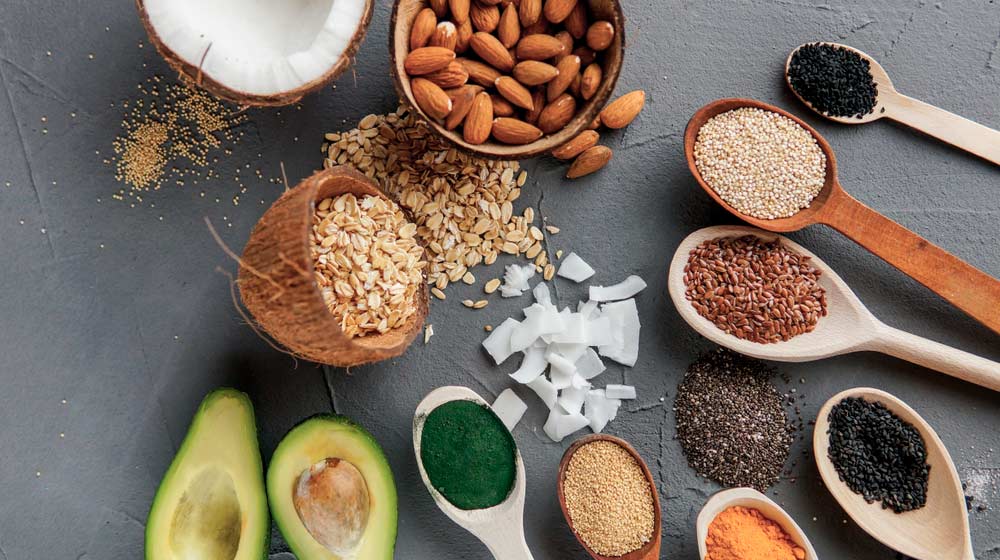
Health


In the US, approximately 35% of adults use folate supplements.1 If you assumed that all of those people are women, you might be mistaken. Folates are important for the proper functioning of all human bodies and there is no reason why women should be the only ones enjoying their advantages. Folic acid offers its own set of health benefits for men as well.
This blog will shed light on the natural sources of folates, their benefits, and the potential side effects of excessive consumption.
Some people use the terms folic acid and folate interchangeably, but this is not correct. Folate is an umbrella term used to describe many different forms of vitamin B9. It includes folates occurring naturally in foods and synthetic forms like folic acid.3
Folic acid is a synthetic form of vitamin B9, a water-soluble vitamin that is essential for many physiological processes. It can be found in fortified foods and as a dietary supplement. Many people—and especially pregnant women—take folic acid to prevent or treat deficiencies and support their reproductive health.2
Natural folates come in a biologically active form that is easier for our bodies to use. However, natural folates are very unstable and easy to degrade during cooking and storage.3 Folic acid, while more stable, must be activated in the liver. Therefore, folate is the preferred form because it is easier for the body to absorb and use.
Should you consider taking this supplement? What are the benefits? If you are trying to conceive or face fertility challenges, folate might be a good idea. It’s also beneficial for men and women with a family history of stroke or cognitive diseases, for example, Alzheimer's. Finally, because folate is involved in DNA synthesis/repair and methylation cycles, maintaining optimal levels is very important.
A variety of foods naturally contain folate. In the US, manufacturers fortify foods with folic acid to ensure adequate folate intake. Let’s take a look.
Here are some the richest natural sources of folate:4
Foods like cereals and enriched flour are often fortified with folic acid, but many of these products are refined and have poor nutritional value. Therefore, it's best to consider more nutritious sources of folate.
The benefits of folate are numerous. In fact, vitamin B9 plays many important roles in the human body. It is essential for making and repairing DNA, cell growth and division, and producing red blood cells.2,5 Most adult people need about 400 mcg DFE of folate per day*.6
*One DFE (dietary folate equivalent) = 1 microgram (mcg) food folate = 0.6 mcg folic acid from supplements and fortified foods.
Low levels of serum folate are associated with a higher risk of stroke. Supplementing with folate, either alone or in combination with other B vitamins, or optimizing levels through foods can help lower this risk.. According to a meta-analysis, B-vitamin supplementation reduces the risk of stroke by 12%.7
B-vitamin supplementation, including folate, B12, B6, and choline, may help slow cognitive decline in individuals at high risk, for example, those with elevated homocysteine levels. How does it work? These nutrients help reduce excess homocysteine, a significant risk factor for Alzheimer’s disease and vascular dementia..8
There is some promising evidence suggesting that improved semen quality might be a benefit of folate supplementation. A meta-analysis from 2020 found folates to increase sperm concentration and other sperm parameters, while another study suggests it might improve sperm count, sperm morphology (shape), and sperm motility.9,10
In the case of women, insufficient folate levels can disrupt DNA methylation and integrity, leading to high homocysteine levels in follicular fluid. This is associated with oocyte (egg) immaturity and poor embryo quality, which can impair fertility and reduce the chances of successful pregnancy outcomes.11,12 This is especially relevant in assisted reproductive technologies like in vitro fertilization (IVF).
Folate is essential for the body to make DNA, especially in rapidly multiplying cells like red blood cells. If there isn’t enough folate, red blood cells cannot divide and end up as large, immature cells known as megaloblasts. This type of blood disorder, also known as megaloblastic anemia, can be prevented and treated with folic acid and vitamin B12.13
There is mixed evidence about the effects of folate supplementation on cancer development. Moderate doses of folate may reduce the risk of cancer before tumors begin to develop. However, high doses might promote cancer progression if the disease is already present.14
You are unlikely to overdose on natural folates and folic acid from fortified foods. Side effects of excess folate are rare, but they might arise if you take too much folic acid in supplement form. The upper limit of folate for adults is 1,000 mcg, but some supplements may exceed this dose without causing side effects in those who take them.
So, what might happen if you take too much folic acid?2,6
Considering folate supplements can be beneficial. Opt Health physicians may recommend them after a thorough evaluation of your medical history, lifestyle habits, and current symptoms.
You may want to consider folate or folic acid supplementation if:
As you can see, there are many factors to consider before introducing folate supplements into your diet. One important aspect to remember: check your current folate levels. Determining your folate concentration is as simple as getting a blood test.
Remember, pills are not a magic fix. It's important to work with an expert who will evaluate every aspect of your health and develop a comprehensive treatment plan. That's exactly what we do at Opt Health.
Folate—the biologically active form that is easier for the body to absorb and use—offers many potential health benefits. These include supporting cardiovascular health, improving fertility, enhancing cognitive function, and preventing anemia.
While you can get enough folate through a balanced diet rich in organ meats, leafy greens, legumes, and fortified foods, supplementation may be necessary for those with dietary gaps, malabsorption issues, or increased physiological demands.
As with any supplement, consult your trusted healthcare provider first.
Your health, your terms. Discover how personalized care can transform not just the way you feel, but how you live.